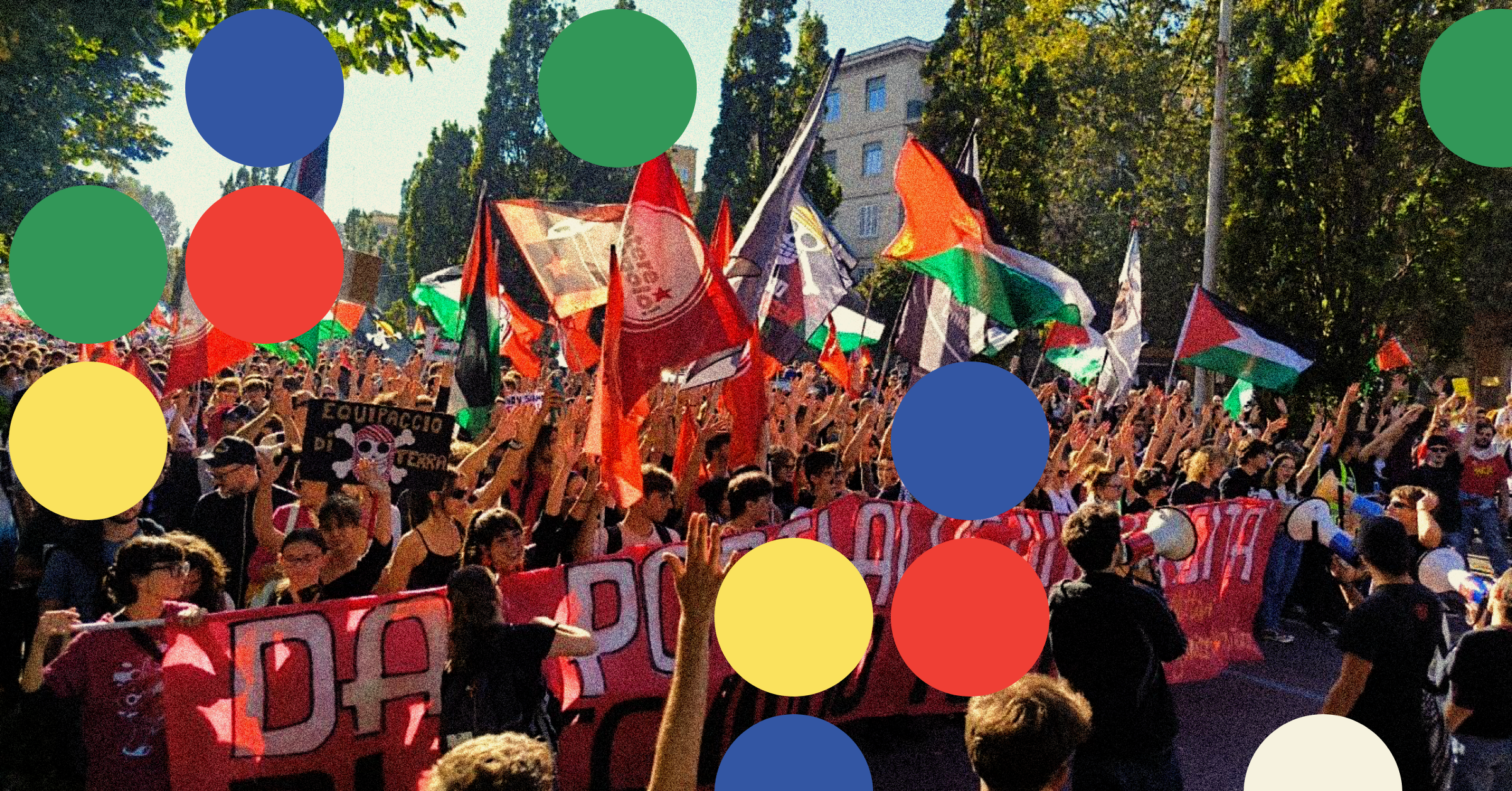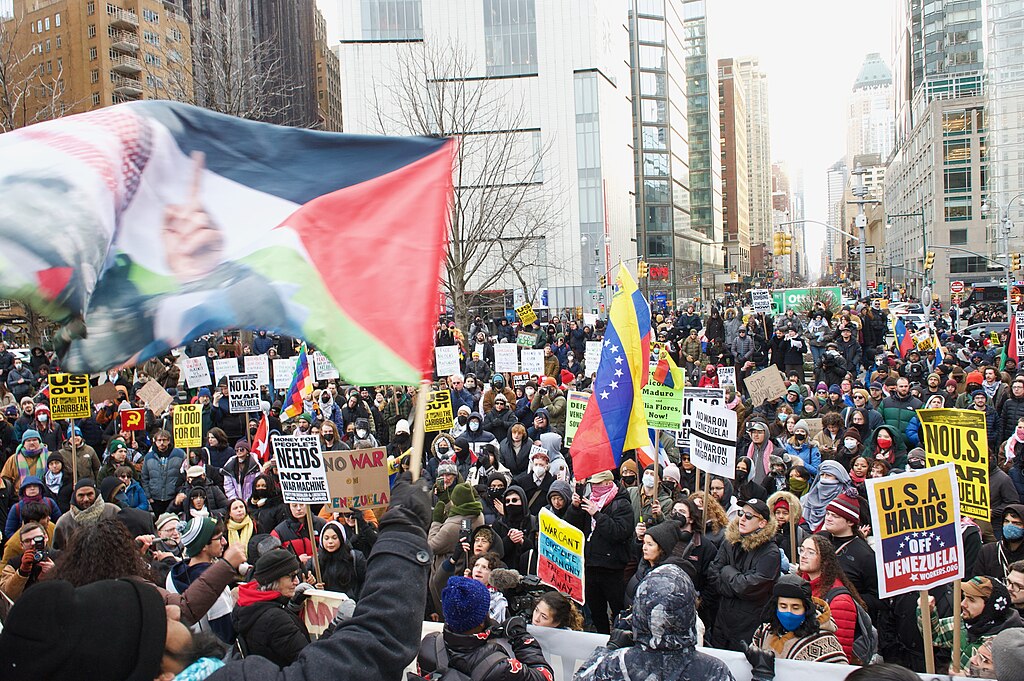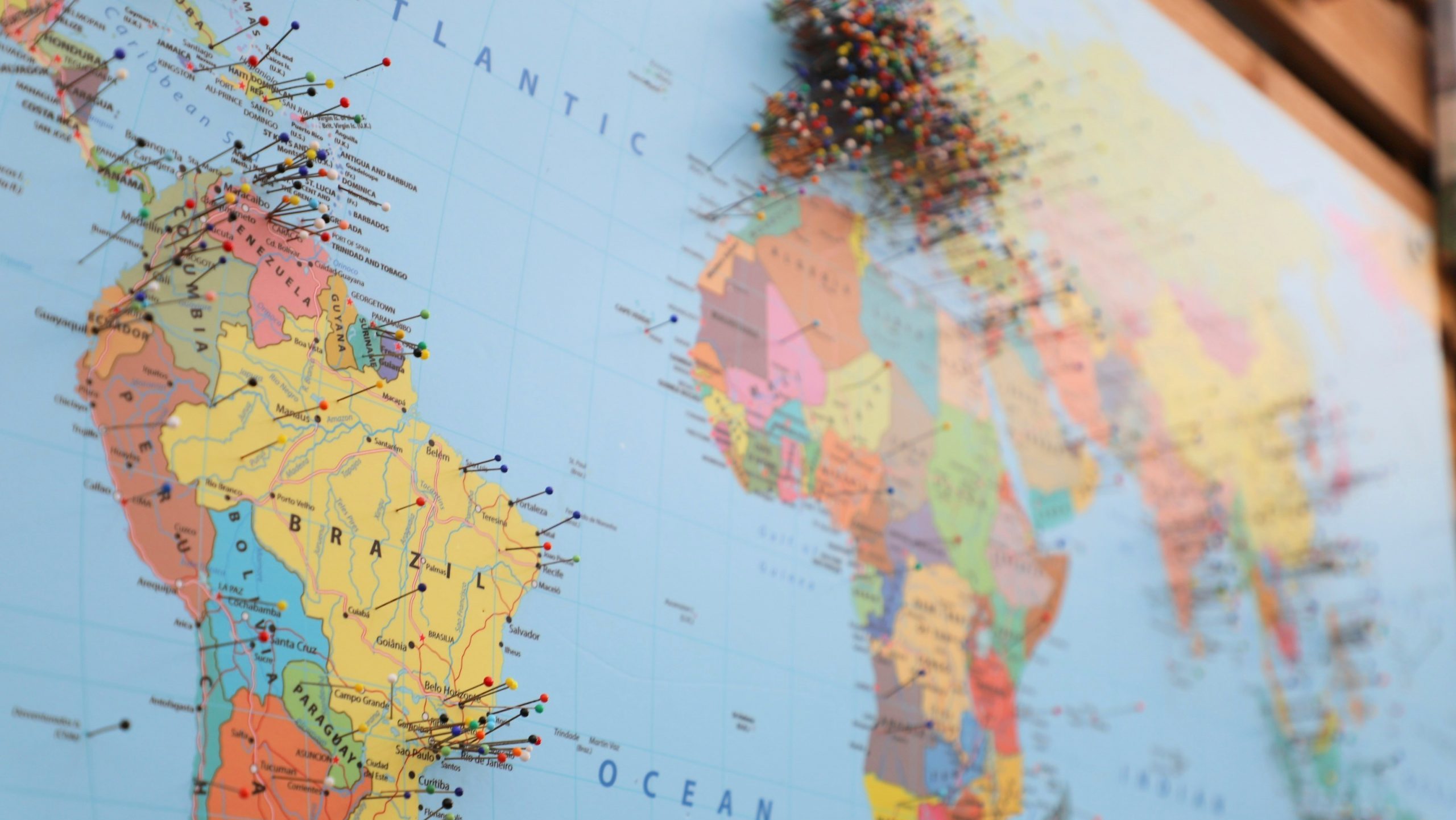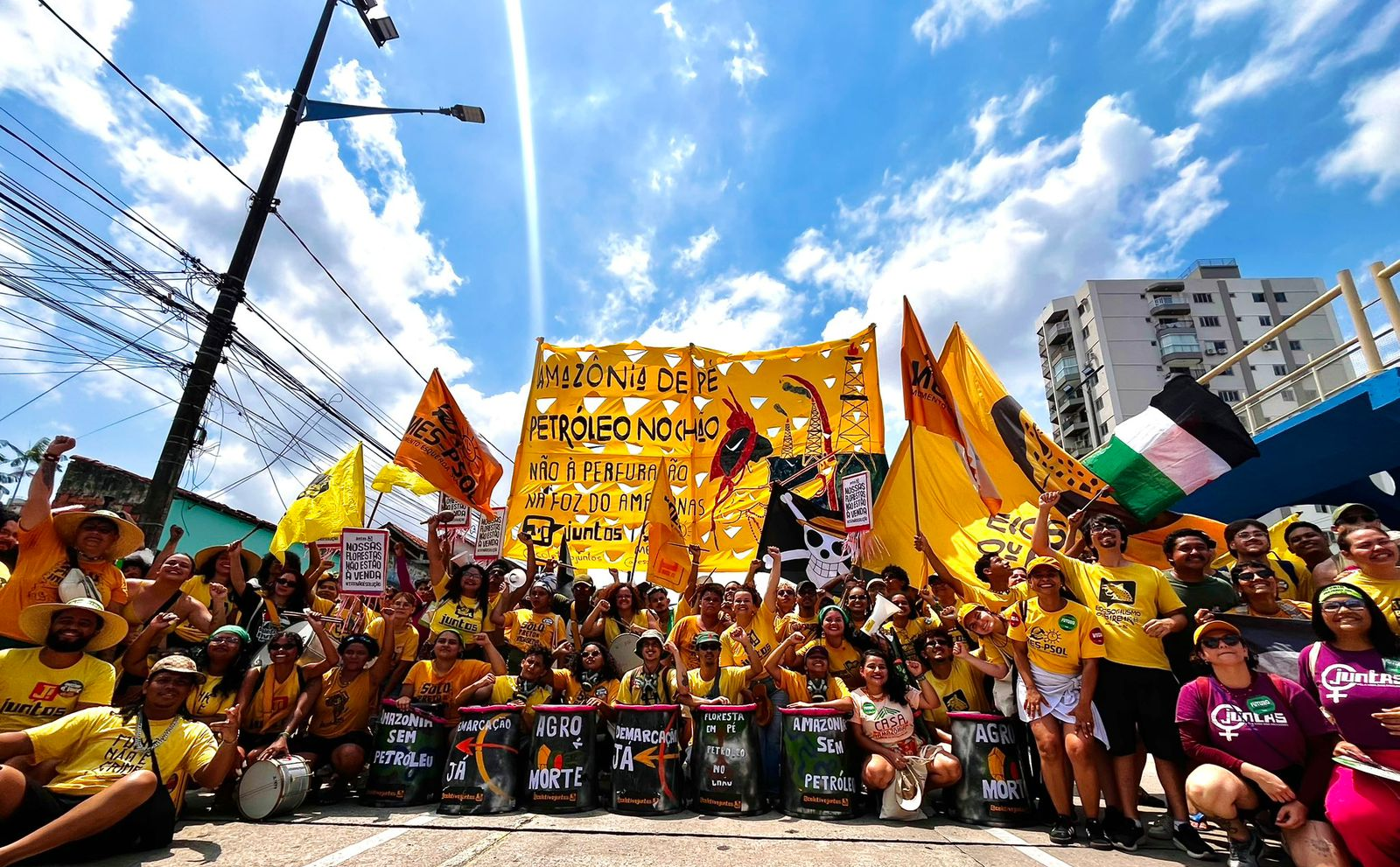On Monday, September 22, 2025, grassroots unions and student organizations throughout Italy successfully organized a general strike in just a few days. The strike coincided with the passage of the Global Sumud Flotilla. The Flotilla constituted a group of boats with activists from all over the world, from Brazil to the United Kingdom and beyond, intending to reach Gaza with aid to break the Israeli government’s blockade.
The bold actions of Italian grassroots unions pushed overwhelming pressure on the Italian government and other political institutions. The Italian government eventually sent two warships alongside the Flotilla. The Italian General Confederation of Labour (CGIL), the biggest confederated labor union in Italy, would join militant organizers in a general strike on October 3rd. The results were staggering – hundreds of thousands flooded the streets.
On Friday, September 26, Bread & Roses member Andrew Sebald interviewed two members of the Italian student movement. Anna is a sociology PhD student and is a member of CAU (Collettivo Autorganizzato Universitario), an organization for militant student organizers with university chapters across the country. Enrico is an undergraduate student in Naples and also a member of CAU. I was joined by two comrades from Brazil’s Party of Socialism and Liberty (PSOL): Victor Gorman, a social work student at the University of Brasilia, an ecosocialist youth organization, and Peter, currently studying abroad. Both are members of PSOL’s MES tendency.
While this revolutionary moment may have passed, this interview attempts to capture crucial perspectives amid a climactic moment in the global fight for a free Palestine.
Can you describe how mobilization for the general strike started, and all the moments that led up to it?
Anna: So, this big mobilization is the result of the work we’ve done in our universities in the past two years. We organized mobilizations demanding academic boycotts within our university administrations, and around other forms of complicity of our government with Israel. We must fight this especially as Italians, because Italy is presently exporting the third most weapons to Israel, violating international law. We had contacts with the Freedom flotilla (the previous flotilla to attempt to sail to Gaza). We met with Rima Hassan, a Palestinian member of the European Parliament for La France Insoumise (LFI), who is onboard the flotilla.
Enrico: Continuing off that, I just want to underline the path that we have traversed. Pro Palestine mobilizations in Italy can be divided in three phases. The first one was just after October 7th, when we all struggled to even mention genocide. Mobilizations were mainly humanitarian ones after seeing Israel’s sudden brutality and barbarism. In this phase, we were often asked to condemn Hamas. The pressure by the government and the media made it difficult to share a political analysis of what is happening in Palestine and on our view of coloniality. Afterward, a second phase launched when we managed to obtain more space in the public discourse to share our position on Palestine. Our counterparts focused more on antisemitism and neutrality in universities, even though they aren’t. Now in our third phase, we see that people of the world are furious. The term “genocide” has been named by the United Nations and is widely acknowledged – not by the European Union yet.
What are grassroots unions, and how will they organize for the general strike?
Enrico: I am not in USB [Unione Sindacale di base, the main promoter of the general strike of September 22]. However, I want to speak on what led up to the general strike and our strategies. All mass movements are products of objective and subjective factors. The objective factors here encompass the Italian perception of the Palestinian struggle. People are fed up. In Naples, we saw not just militants but also families out in the streets, with almost fifty percent of the mobilization constituted of high school students. There are also subjective elements. By this we mean that there was a militant organization behind this mobilisation. CGIL, the center-, and liberal left wanted us to believe this was just born out of the blue. No, this was organized. Our flyers, occupations, assemblies, etc,. did not collude with institutional powers, and produced a “rupture force”, capable of breaking with the center left. The CGIL called for a strike on the 19th to lure attention away from the 22nd, and it was a total failure. Not every protestor had a USB union card, but we know the CGIL wouldn’t have been able to organize this mobilization.
Anna: We have two types of trade unions: confederate and grassroot ones. The confederate ones, like CGIL, are bigger and linked to what we call the “false opposition” to our government. It’s driven by the center-left Democratic Party, who has not supported our struggles around the Gazan genocide. They did not protest until this June, which is a shame for them. Comparatively, we have grassroot trade unions. USB is one of the main unions mobilizing for the flotilla. Grassroot trade unions have been mobilizing workers for Palestine for two years. USB effectively contacted workers and organized them and played a pivotal role because of its link with dockworkers in Genoa. Genoan dockworkers are organized through CALP (Collettivo Autonomo dei Lavoratori Portuali). Previously, they have mobilized to block weapon shipments from the port of Genoa to Palestine and Yemen. The government punished them for that, but they were ready when the flotilla started. Some of them are on the flotilla now.
Fifty thousand people marched in the city in the past few days. One of the dockworkers went viral saying, “if we lose contact with our boats, with our comrades, even for just twenty minutes, we will block everything.” This simple slogan proved effective, which several organizations throughout Italy used to organize starting from the days before the general strike.
This all started from CALP, which is part of USB. We created national networks in all our active cities, which helped prepare the general strike. We as students worked with USB through Potere Al Popolo (Power to the People), which allowed us to coordinate actions in every step of building the general strike. So for us, if something happens in the flotilla, we will block everything, meaning that we will block universities.
What role did the student movement play in organizing for the general strike, and what was its impact?
Anna: For a long time, the student movement was at the forefront of the pro-Palestine movement here. We were the first to break the silence in public discourse. For the first year and a half, even saying “genocide” was difficult. When we occupied a university in Spring 2024, we had an interview on national television. The network ultimately censored us because they thought we would say “genocide” on TV. The government and university administration said that we were antisemitic and attacked us. We faced repression and criminalization, but we remained steadfast. We did not retrocede because those were our words. This made these positions more mainstream. We slowly gained more space in the public discourse, growing alongside gradual approval among the rest of the population. Making it possible to speak about genocide, condemn Israel, and the Zionist complicity of our institutions sparked widespread debate and allowed more people to speak freely about Palestine and join our movement.
Enrico: Italy has a different university model versus the US. Things that work in the US may not work in Italy, and vice versa. For example, encampments can work on US campuses, but can’t work in Italy because universities don’t have the space.
So, how were university students able to lead national and international mobilizations? Not because we are young and cool, but because universities are institutions that reflect economic structures in society. Our schools propagandize around competition and militarization. Yet, there is another vital function of the university, which is its ability to put democracy in practice. It’s a center where people in power are forced into discussion. This is how we can overwrite mainstream propaganda.
This general strike was organized under the Giorgia Meloni administration. Earlier, Meloni was quoted saying, “If something that doesn’t exist is recognized on paper, the problem could appear to be solved when it isn’t.” Police also fought protestors in various areas throughout the country. Now, in the wake of this strike, Italy has decided to send a warship to protect the flotilla. So, what struggles have you faced with this administration, and what victories have you gained despite them?
Enrico: The Meloni Government has been the most right-wing government in Italy since Mussolini. Repression has always been an element here. The Italian people remember the 2008 protests against the university reform and the Years of Lead, but more importantly, our organization historically understands how to face these struggles. Repression can be directly proportional to the magnitude of a mobilization. Last year, the Meloni Government approved the DL Sicurezza, a borderline fascist law that hindered our capacity to protest. Members of CAU, Cambiare Rotta and Potere al Popolo!, discovered that five policemen had infiltrated five different student collectives for ten months. They presented themselves as enthusiastic student organizers, but some of their practices made us question whether they were actually policemen. We then discovered everything from open source research. We brought our evidence to the Parliament, but they initially negated the infiltration. We were told that this guy who infiltrated our collective in Naples was there because he liked a girl from our collective, and then we were told that he was there because he was just a student, and didn’t actually engage with the police. But when the other infiltrators were discovered, they were obligated to actually respond. Their response was general, saying it was for prevention, fearing a possible return to the Years of Lead. All of that is bullshit to distract from the fact that these men infiltrated a political party.
Yesterday, we discovered that the Ministry of Antisemitism of Israel proposed a document about the recent Italian mobilizations regarding their risk, who promoted them, their Instagram followers, their likes, etc. Our collective and some of the mobilizations we organized were included in that list. How contradictory is it that a nationalist government like the Italian one permits the intelligence of a foreign country to enter our borders?
Where is the center-left in all of this? All the components of the center left that are in Parliament, condemned the violence that happened in the last days in Milan and other demonstrations across the country, and said little on the underlying massive force that was behind these organizations. Why? Because they know that they cannot bring the same radicalism and people in the streets, and are incapable of bringing forth a force of ruptures with other political forces in Italy.
I saw videos of drivers who were interviewed while highways were blocked and several of them were in support of the strike and Palestine. It was very moving to see that. What was able to change a majority of the population’s opinion since the start of the genocide?
Anna: We have a far-right government that is implementing policies and new laws to harshly punish political dissent. This process started with previous administrations, but has accelerated under Meloni. Some police violence also happened on the 22nd, but the fact that there were thousands of people in the streets helped limit potential police violence because there were too many of us. They couldn’t stop us. We didn’t fear water cannons or tear gas at train stations, ports, highways, etc. We just were able to outnumber the police.
Repression is a problem and our government has always been in support of Israel. Not just the Prime Minister, but also the Minister of University and Research. When we started encampments last spring, Italian university presidents, the Minister of University and Research and the Minister of the Interior, all met to see how they could repress our protests. Now, this government is shifting in a different direction. Our Prime Minister said we will recognize the State of Palestine, but with certain conditions including dismantling Hamas, freeing all the hostages, etc. I think that there are at least two Italian warships that are going to join the flotilla. It is not to prevent attacks from Israel, but to save Italian citizens on board in case of Israel attacks the flotilla again. So, the action of sending warships was not to prevent attacks, but to react to them.
In terms of popular support, there has been a significant shift. Since last May or June, popular opinion started swaying more openly pro-Palestinian. I think what’s helped this process was, of course, the constant presence of mobilizations for Palestine, and symbols in public spaces. The Italian media is still pro-Israel, but the atrocities being committed are just too evident to hide them. People see what is happening and understand that Israel responsible.
What does the general strike do for Gaza and the Palestinian cause, and what does it say about the future of the Italian left?
Enrico: The 22nd was a historic day. It demonstrated that Italy can organize with other European comrades. This brought forth a collective consciousness that intended to disrupt power. Protesters acknowledged that the Sumud flotilla wasn’t just a humanitarian project. If it was, the flotilla would have simply accepted the proposals of Minister Crosetto and Israel to take off to Cyprus and then allow Israel to conduct humanitarian aid into the Strip. Crosetto and Meloni conceded to us because they know that if they at least didn’t send a warship, they would have had more trouble. It is a victory for us. However, Italy will only help the Sumud flotilla in international waters if they are attacked, but they will not attack the Israeli ships. This is the bare minimum.
Regarding the next steps, USB has already proposed a general strike again, this time without any notice. There will be another big national demonstration on the 4th of October called by local Palestine organizations, and we hope that it will be huge. We are not scared of repression, we are not scared of taking the debate line even further. The Sumud flotilla is only the start.
Anna: What Italy and the West can do for Palestine is to stop the complicity of our institutions at all levels. We need to block the war machine, and we also need to increase pressure on our governments at the local, national, and European level to cease this complicity. Every kind of mobilization that puts our governments in a difficult position contributes to the Palestinian struggle. Meloni said after the 22nd that we were protesting to attack the government. We agree with her on that. Our protest was not just against Israel but it was also against the Italian government and its complicity with Israel. Our protest is also against the complicity of the European Union. Our protest is also against the imperialistic politics of the NATO alliance. The US is using several NATO bases in the south of Italy to surveil the last flotilla missions.
This strike is showing us how we can do so in practical terms. We can block a port to block a boat carrying weapons to Israel. We can block a railway station to put strong pressure on our institutions. The days following the general strike, people have been blocking railway stations again and are ready to block other critical infrastructures. People are ready to join us. It is our duty to keep this movement alive, and to keep mobilizing in the next days when the whole pro-Palestinian movement is ready to take the streets again. We are ready to keep mobilizing to fight Israel, our governments, and other Western institutions to dismantle their imperialistic and capitalistic policies.




